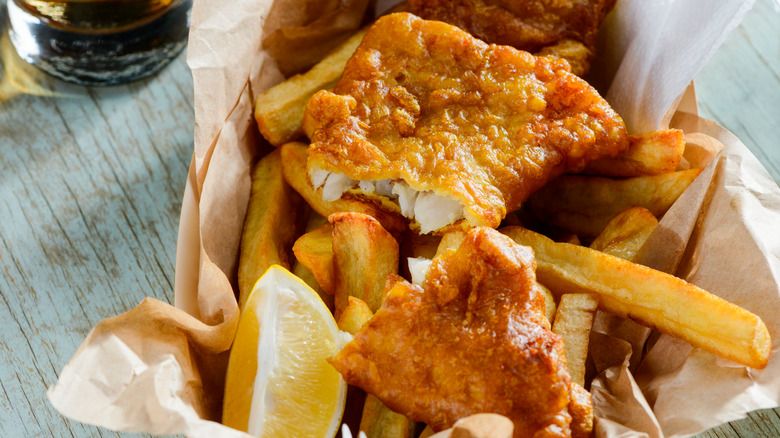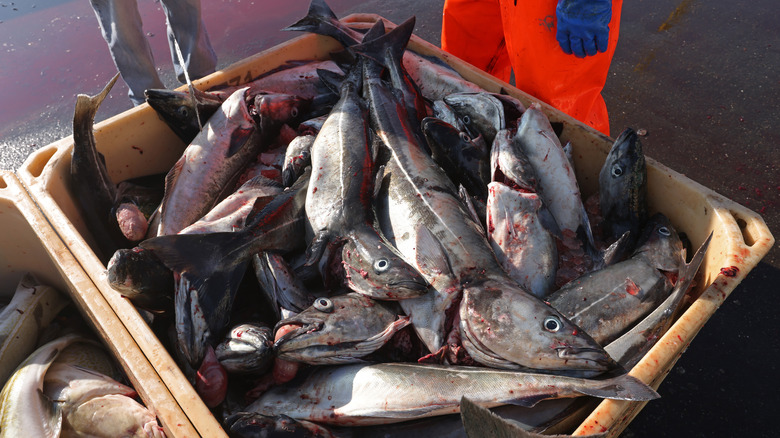Why Cod Might Be Harder To Find In The Future
Few things are more synonymous with the United Kingdom than fish and chips — apart from tea, perhaps. But "chippies," as they are known, have been around for many years and are a distinct part of the local culture in the United Kingdom. However, light and flaky white cod that's often served up there might be much harder to find in the coming years.
According to The Guardian, the International Council for the Exploration of the Sea (ICES) came to the conclusion in 2019 that cod populations in the North Sea had reached "critical levels." In a report, the organization stated that fishermen needed to reduce their catch by 63% on top of a 47% cut suggested the year before. While the shortage of cod on some days at the fish market has created a buying frenzy, this is not the first time that the number of cod available has dropped incredibly low.
The last time cod numbers dropped so far, between the 1970s and 2006, a "cod recovery plan" was put into place to enforce sustainable practices that would help the fish recover. Restrictions such as fewer fishing boats, fewer days to fish, and escape routes for younger cod in the nets among other initiatives helped raise cod stocks over time.
Cod has been overfished for too many years
However, those initiatives were reversed once the cod population had recovered. According to The Guardian, environmental organizations believe that boats now fishing the recovered areas have damaged the fragile ecosystems that were recovering. While the cod may have recovered to some extent, the larger issue remains, overfishing. Without permanent, sustainable practices, fishermen continue to pull more fish out of the ocean too fast. This means that the fish don't have a chance to reproduce to sustain the populations before being caught.
Given the amount of cod the U.K. eats per year, it's understandable as to how overfishing became the normal practice. Of the 115,000 tons of cod the U.K. eats annually, only 15,000 tons come from U.K. fishermen in the North Sea. The other 100,000 tons is imported from Norway and Iceland, which fish the Barents Sea.
Given that the U.K. fought four wars between the 1950s and the 1970s to try to fish the waters very near to Iceland's shores, it shouldn't be too surprising that they are now importing fish from the abundant waters (via British Sea Fishing). At one point, 37 Royal Navy ships were sent to protect U.K. fishermen off the coast of Iceland. Though the "Cod Wars" disputes over who could fish the waters were finally resolved diplomatically, those in the industry might still wish they had access to those waters. The cod industry does support some 24,000 people across the United Kingdom, according to The Guardian.

